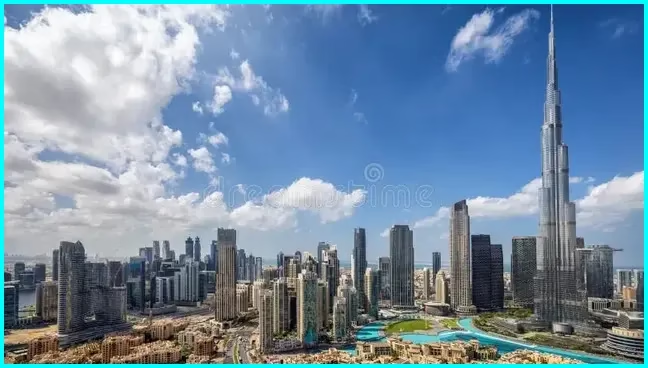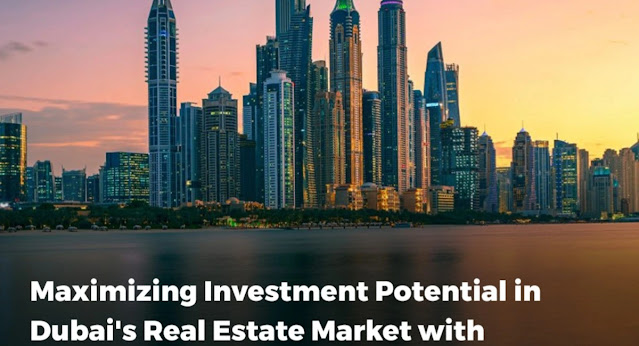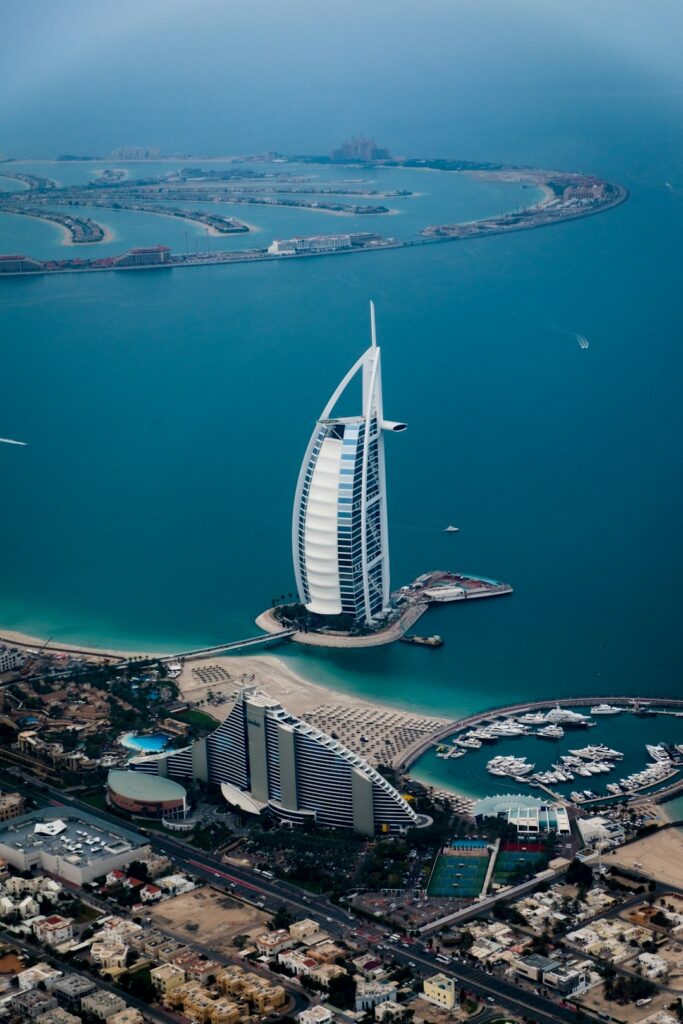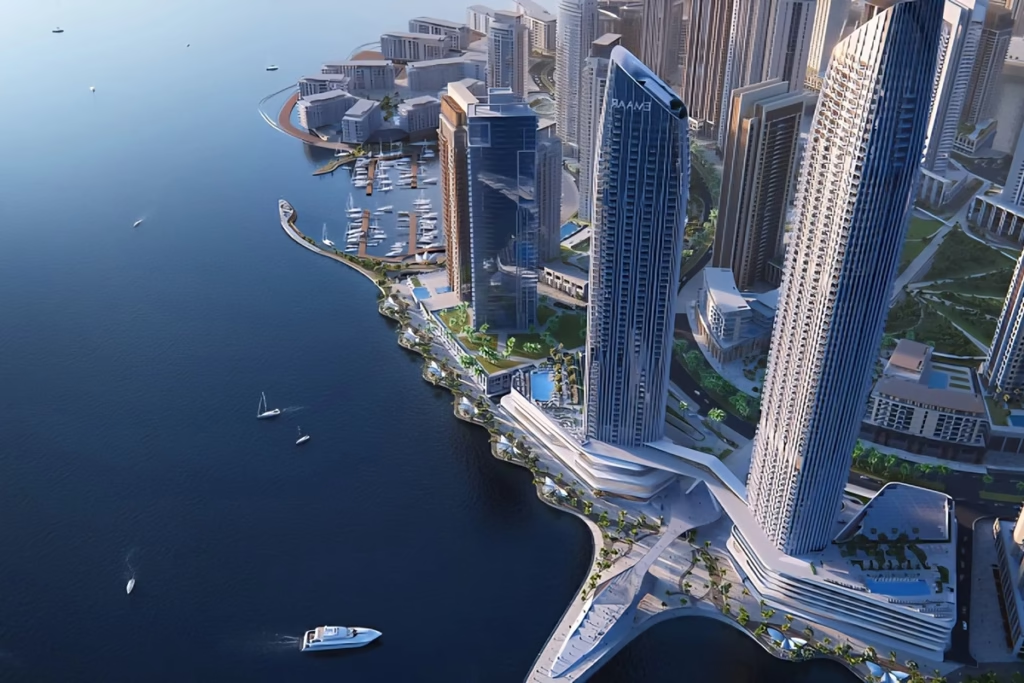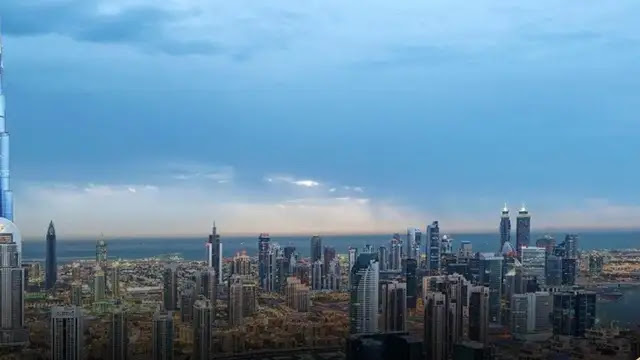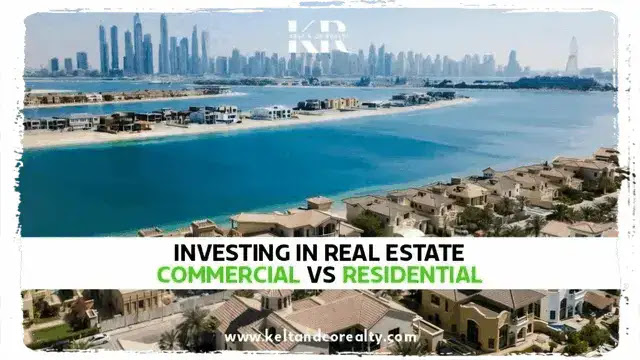New Developments vs. Ready Properties in Dubai: Investment Guide
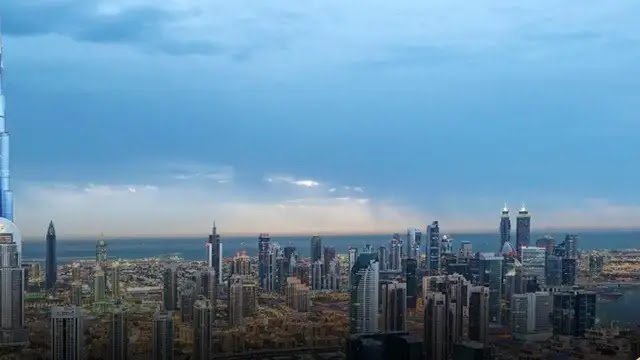
Overview of Dubai Real Estate Market
When considering the real estate landscape, Dubai stands out as a vibrant and rapidly growing sector. The evolution of this market can be attributed to several dynamic factors that continue to attract both local and international investors.
Growth of Real Estate Sector in Dubai
Over the past decade, Dubai’s real estate market has undergone a remarkable transformation. With ongoing infrastructural advancements and a strategic emphasis on becoming a global hub for tourism and business, the sector has seen significant growth. Properties across various sectors—residential, commercial, and industrial—are witnessing increasing demand.
- Population Growth: Dubai’s population has expanded, leading to heightened demand for housing and amenities. For instance, the influx of expatriates and foreign nationals seeking employment or lifestyle changes has added pressure on the real estate market to cater to diverse needs.
- Mega Projects: Landmark projects like the Expo 2020 site, which has now evolved into a residential and commercial area, have contributed to this growth. The anticipation of such events has a long-lasting effect, catalyzing investments and developments.
Factors Driving Investment in Dubai Properties
Several core factors are propelling investments in Dubai properties:
- Tax Benefits: The absence of property taxes and favorable regulations attract international investors looking for profitable opportunities.
- Stable Currency: The UAE Dirham is pegged to the US dollar, contributing to currency stability and attracting foreign investments.
- Global Hub Status: Dubai’s strategic location connects key international markets, developing its reputation as a global business hub.
- Quality of Life: Superior lifestyle amenities, coupled with a safe environment, are appealing to families and professionals.
Investors are finding Dubai to be a lucrative option, paving the way for innovative developments and ready properties alike. It’s an exciting time for anyone looking to dive into the Dubai real estate market.
New Developments in Dubai
As Dubai’s real estate market continues to flourish, the focus on new developments presents exciting opportunities for investors and homebuyers alike. This section delves into the current trends shaping these properties and the potential benefits and challenges associated with investing in them.
Current Trends in New Property Developments
The landscape of new property developments in Dubai is constantly evolving. Recently, there has been a noticeable shift towards:
- Sustainable Living: Developers are increasingly focusing on eco-friendly projects that prioritize sustainability. From green building standards to energy-efficient designs, these properties appeal to the environmentally conscious buyer.
- Mixed-Use Developments: These projects blend residential, retail, and commercial spaces, fostering vibrant communities. An example is Dubai Creek Harbour, which offers attractive living spaces alongside shopping and recreational areas.
- Smart Technologies: Integration of smart home technologies is becoming a standard feature. Investors are keen on properties equipped with IoT devices, offering enhanced security and convenience.
Advantages and Challenges of Investing in New Projects
Investing in new developments can be quite enticing, but it comes with its unique set of advantages and challenges.
Advantages:
- Potential for Higher Returns: New properties often experience accelerated appreciation in value, particularly in a rising market.
- Customization Opportunities: Buyers may have the option to customize certain aspects during the construction phase, creating a personalized living experience.
- Modern Amenities: New buildings typically offer the latest facilities, attracting renters and enhancing resale value.
Challenges:
- Construction Delays: One significant risk is the potential for delays in project completion, which can affect investment timelines.
- Market Competition: With many new developments entering the market, competition can overshadow certain projects, leading to price drops or reduced demand.
For prospective investors, understanding these trends and navigating the advantages and challenges can significantly influence their decisions in this vibrant market. Being informed is an investor’s best ally in the dynamic world of Dubai real estate.
Ready Properties in Dubai
As the landscape of Dubai’s real estate market evolves, investing in ready properties offers a compelling option for investors seeking immediate returns and convenience. This section explores the numerous benefits of investing in ready properties, as well as essential considerations to keep in mind before making a commitment.
Benefits of Investing in Ready Properties
The allure of ready properties in Dubai is undeniable, particularly for those looking to capitalize on their investment quickly. Here are some key benefits:
- Immediate Rental Income: One of the most appealing aspects is the ability to start generating income right away. For instance, if you buy a ready apartment in a high-demand area like Dubai Marina, it can be rented out the moment you finalize the purchase.
- Established Communities: Ready properties are often located in developed neighborhoods with functional infrastructure, amenities, and services, contributing to a better quality of life for tenants or owners.
- Less Uncertainty: With ready properties, buyers can physically inspect the units and see exactly what they’re purchasing, minimizing the risks associated with unforeseen construction delays.
- Market Insight: Investors have a clearer understanding of the current market value by analyzing completed properties in the area, allowing for more informed purchasing decisions.
Considerations Before Investing in Ready Properties
While the advantages are substantial, there are critical considerations to weigh:
- Market Conditions: Analyze the local real estate market trends. Is it a buyer’s market or seller’s market? Competitive environments might drive higher prices.
- Property Condition: It’s essential to conduct thorough inspections to assess the property’s condition, especially older units that may require upgrades.
- Ongoing Costs: Factor in homeowners association fees, maintenance costs, and any potential renovations the property may need.
- Location Dynamics: Research the area’s future development plans. Upcoming infrastructure projects could influence property values.
Investing in ready properties can be a lucrative venture, but it requires due diligence and sound decision-making. By balancing the benefits and considerations, investors can make informed choices that align with their financial goals in Dubai’s vibrant market.
Comparison between New Developments and Ready Properties
As investors navigate the Dubai real estate market, understanding the differences between new developments and ready properties is essential for making informed decisions. This section highlights financial considerations and growth potential, coupled with a risk assessment to provide clarity in choosing the right investment path.
Financial Considerations
When evaluating new developments versus ready properties, financial implications can vary significantly:
- Initial Investment: New developments often require larger sums upfront, including down payments during the construction phase. For instance, an off-plan apartment may require buyers to pay 20% initially, with subsequent payments tied to construction milestones.
- Financing Options: Lenders might offer better financing deals for ready properties due to their established market presence and valuation. This accessibility makes it easier for investors to secure favorable mortgage terms.
- Rental Yields: Ready properties typically offer immediate rental income, allowing investors to recoup their investment faster. Conversely, new developments may take time before generating cash flow, depending on market absorption rates.
- Appreciation Factors: New developments may experience rapid value growth owing to modern amenities and designs, while ready properties may stabilize in value, reflecting established demand.
Growth Potential and Risk Assessment
Understanding growth potential and associated risks helps investors make strategic choices:
- Growth Potential: New developments often come with opportunities for higher appreciation due to their novelty and desirability. However, the market can be volatile; a sudden economic downturn could hinder sales.
- Market Saturation: Established areas with ready properties may have less potential for skyrocketing growth. Yet, they tend to be more stable, providing steady rental income and resilience during market fluctuations.
- Risk Assessment: Investing in new developments carries risks, such as construction delays and changes in market demand. In contrast, ready properties can pose risks related to property condition and ongoing maintenance costs.
By weighing these financial considerations against growth potential and risks, investors can align their strategies with their financial goals and risk tolerance in the thriving Dubai real estate market.
Investment Strategies for Dubai Real Estate
With a thriving real estate market, investors in Dubai have various strategies at their disposal to maximize their returns. Understanding the nuances of short-term versus long-term approaches and the importance of diversification is key to successful investing in this dynamic environment.
Short-Term vs. Long-Term Investment Approaches
When considering investment strategies, determining whether to pursue short-term or long-term approaches is essential, as each comes with its unique set of advantages and challenges.
- Short-Term Investments:This strategy involves flipping properties or investing in new developments with quick resale potential. Investors often focus on:
- Rapid Project Sales: Acquiring properties before completion to sell at a profit as soon as they are built.
- Market Timing: Taking advantage of fluctuations in the market for quick turnover.
For instance, an investor might purchase in a high-growth area and sell just as demand peaks. However, this approach can be risky, especially if market conditions fluctuate unexpectedly.
- Long-Term Investments:This approach focuses on holding properties for years to benefit from appreciation and stable rental income. Key benefits include:
- Steady Cash Flow: Regular rental income can help cover mortgage payments and other expenses.
- Tax Advantages: Long-term holders might enjoy tax benefits related to property depreciation.
An anecdote shared among seasoned investors is that patience often pays off, as properties in up-and-coming neighborhoods appreciate significantly over time.
Diversification in Dubai Property Portfolio
Diversification is another critical strategy in the realm of real estate investment. Spreading investments across various property types and locations can mitigate risks. Here’s how:
- Mix of Property Types: Consider investing in residential, commercial, and vacation rental properties. Each can offer unique revenue streams and exposure to different market dynamics.
- Geographical Spread: Investing in different neighborhoods within Dubai can protect against localized downturns. A property in Downtown Dubai may behave differently than one in Dubai Marina, and understanding these trends is crucial.
- Risk Mitigation: By diversifying, investors can manage potential downturns in a specific segment of the market. For example, if luxury apartments face a dip, residential units in more affordable areas may continue to thrive.
In conclusion, whether choosing a short-term or long-term investment approach, or opting for a diversified portfolio, the key is to align strategies with individual risk tolerance and market insights. By leveraging informed decisions, investors can navigate the expansive opportunities within Dubai’s real estate scene.
Regulatory Environment for Real Estate Investment in Dubai
Investing in Dubai’s burgeoning real estate market is enticing, but navigating the regulatory environment is crucial for success. Understanding the legal considerations for property investors, as well as regulations impacting both new developments and ready properties, can empower investors to make informed choices.
Legal Considerations for Property Investors
Before purchasing a property in Dubai, investors should familiarize themselves with essential legal aspects:
- Freehold vs. Leasehold Ownership: Many areas in Dubai offer freehold ownership for expatriates, meaning full ownership of the property and the land. However, some developments only provide leasehold tenure, where ownership is limited to a specified period.
- Title Deeds: Upon completing a property purchase, ensuring the issuance of a title deed is vital. This legal document confirms ownership and is registered with the Dubai Land Department (DLD). Having proper documentation protects against future disputes.
- Registration Fees: Investors should also be aware of associated costs, such as registration fees, which typically amount to about 4% of the property’s purchase price.
- Investment Restrictions: Some sectors have specific limitations on foreign ownership; hence, knowledge of the regulations is essential to avoid unexpected complications.
An investor shared that navigating the legal maze might seem daunting, but working with a reputable agent or legal advisor can smooth the process significantly.
Regulations Impacting New vs. Ready Properties
The regulatory environment impacts both new developments and ready properties differently:
- For New Developments:
- Escrow Accounts: Developers are mandated to open escrow accounts to protect buyers’ funds during construction. This ensures that their money is used exclusively for the project.
- Completion Guarantees: Laws require developers to provide guarantees on completion and timely delivery to protect buyer interests.
- For Ready Properties:
- Building Codes and Safety Regulations: Investing in ready properties necessitates compliance with local safety standards and building codes, ensuring that the structures are fit for habitation.
- Tenancy Laws: With ready properties, landlords must adhere to the Rent Law in Dubai, which outlines tenant rights, eviction procedures, and rental increase regulations.
In conclusion, understanding the legal landscape and relevant regulations is crucial for investors in Dubai’s real estate market. By being well-informed, investors can navigate the complexities of property ownership, whether they are considering new developments or ready properties, and make decisions that align with their investment strategies.
Conclusion and Recommendations
As we wrap up our exploration of Dubai’s real estate market, it’s imperative to reflect on the insights gained and offer practical recommendations for potential investors. The dynamic landscape of this market presents remarkable opportunities, but it also demands careful deliberation.
Summary of Investment Insights
Throughout this discussion, we delved into several critical aspects of investing in Dubai real estate:
- Market Growth: The Dubai real estate market is on an upward trajectory, driven by population growth and an influx of international investments.
- New vs. Ready Properties: Both new developments and ready properties have their unique benefits and challenges that cater to different investment strategies.
- Investment Strategies: Short-term and long-term approaches are viable paths, and diversifying one’s portfolio is vital for risk management.
- Regulatory Landscape: Familiarity with the legal environment is essential, particularly regarding ownership types, registration fees, and safeguards for buyers.
The blend of excitement and caution encapsulates the essence of investing in this remarkable city.
Guidelines for Making Informed Investment Decisions
To navigate Dubai’s real estate waters successfully, investors should adhere to the following guidelines:
- Conduct Thorough Research: Always stay informed about market trends, property valuations, and neighborhood dynamics.
- Engage Professionals: Consider working with seasoned real estate agents, legal advisors, and financial consultants who can help guide the investment process and mitigate risks.
- Analyse Financials: Evaluate long-term financial implications, including potential rental yields and associated maintenance costs for both new and ready properties.
- Visit Properties: Whenever possible, visit the properties personally to understand local conditions, neighborhood amenities, and the surrounding community vibe.
- Stay Current on Regulations: Keep abreast of any changes in regulatory requirements, as these can impact your investment’s viability and profitability.
By following these guidelines, investors can make informed decisions tailored to their financial goals and risk tolerance, ultimately leading to successful real estate investments in the vibrant city of Dubai. With thoughtful planning and diligence, the opportunities in this unique market can be truly rewarding.




